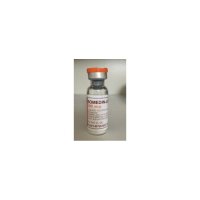S
Sciroxx
MuscleMecca Sponsors
Staff member
Sponsor
Member
- Joined
- Nov 27, 2017
- Messages
- 246
- Points
- 18
The Role of IGF-1 in Enhancing Insulin Sensitivity and Overall Health
IGF-1 is widely regarded as one of the most anabolic hormones in the body. However, its health benefits, particularly in improving insulin sensitivity, are often overlooked. The modern Western diet, coupled with the high-calorie intake common among bodybuilders (especially from carbohydrates and proteins), places a heavy burden on the pancreas. This constant demand for insulin production can, over time, reduce the sensitivity of tissues like muscle and fat to insulin, leading to diminished insulin sensitivity.
In response, some bodybuilders resort to using exogenous insulin to manage the calorie surplus and promote "extra" growth. While this may provide short-term gains, it exacerbates insulin resistance, increasing the risk of metabolic issues.
IGF-1, on the other hand, directly enhances insulin sensitivity, allowing the body to utilize its natural insulin more efficiently. This makes IGF-1 a powerful tool for mitigating the adverse effects of high insulin levels.
For those seeking to harness IGF-1's full anabolic potential, higher doses (ranging from 50-150mcg per day) are recommended. However, in such cases, a 4-weeks on/4-weeks off cycle is advised to avoid diminishing returns and maintain effectiveness.
By integrating IGF-1 into your regimen, particularly alongside HGH, you can achieve optimal anabolic effects while safeguarding against the metabolic pitfalls of insulin resistance.

IGF-1 is widely regarded as one of the most anabolic hormones in the body. However, its health benefits, particularly in improving insulin sensitivity, are often overlooked. The modern Western diet, coupled with the high-calorie intake common among bodybuilders (especially from carbohydrates and proteins), places a heavy burden on the pancreas. This constant demand for insulin production can, over time, reduce the sensitivity of tissues like muscle and fat to insulin, leading to diminished insulin sensitivity.
In response, some bodybuilders resort to using exogenous insulin to manage the calorie surplus and promote "extra" growth. While this may provide short-term gains, it exacerbates insulin resistance, increasing the risk of metabolic issues.
IGF-1, on the other hand, directly enhances insulin sensitivity, allowing the body to utilize its natural insulin more efficiently. This makes IGF-1 a powerful tool for mitigating the adverse effects of high insulin levels.
How to Use IGF-1 Effectively
IGF-1 usage is straightforward and easy to manage. The preferred form is IGF-1 LR3, known for its extended half-life, which maximizes its metabolic benefits. For improving insulin sensitivity, a standard protocol involves taking 20-30mcg before your main meal, ideally post-workout. This approach can be sustained year-round for consistent results.For those seeking to harness IGF-1's full anabolic potential, higher doses (ranging from 50-150mcg per day) are recommended. However, in such cases, a 4-weeks on/4-weeks off cycle is advised to avoid diminishing returns and maintain effectiveness.
IGF-1 and HGH: A Powerful Synergy
IGF-1 pairs exceptionally well with HGH (Human Growth Hormone), offering complementary anabolic and anti-catabolic effects. While HGH tends to increase blood glucose levels (which, over time, can reduce insulin sensitivity), IGF-1 helps counteract this by lowering glucose levels to healthy ranges and restoring insulin sensitivity. Together, they form a balanced and synergistic approach, maximizing both performance and metabolic health.By integrating IGF-1 into your regimen, particularly alongside HGH, you can achieve optimal anabolic effects while safeguarding against the metabolic pitfalls of insulin resistance.
Last edited:













